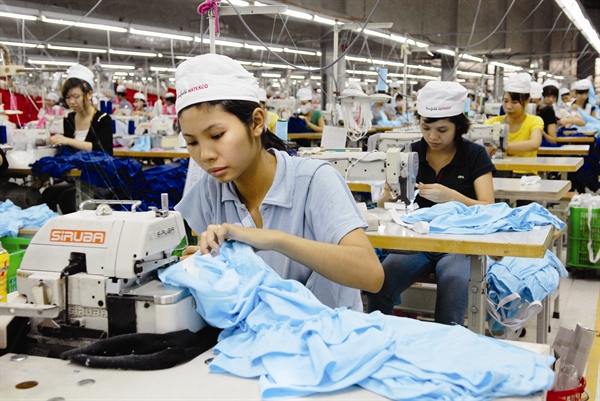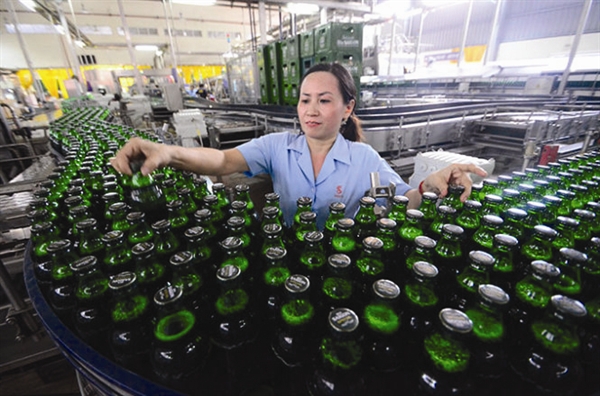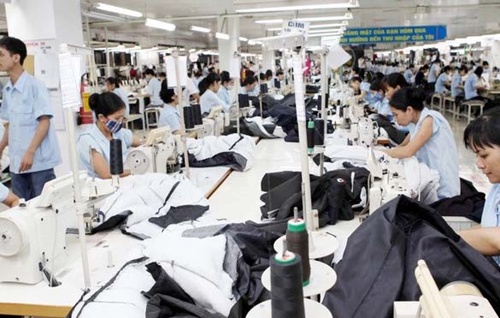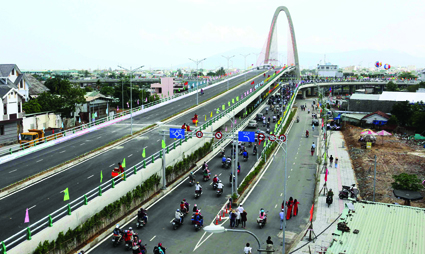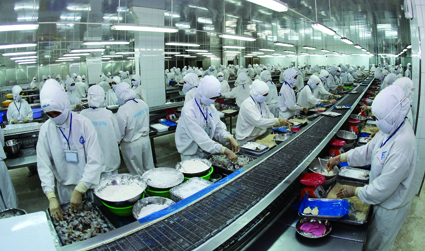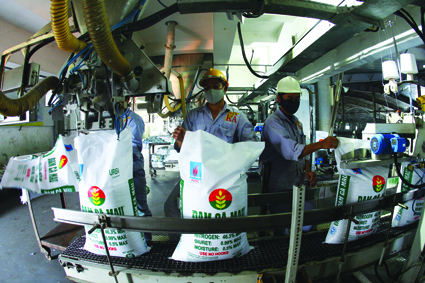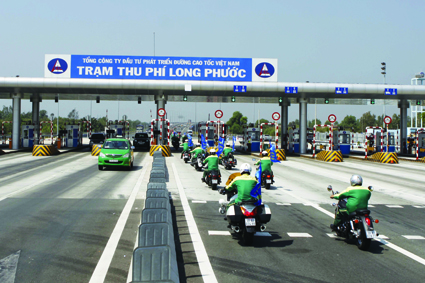Vietnam and the European Union (EU) on August 4 announced the initial conclusion of their negotiations on the bilateral free trade agreement (EVFTA). The EVFTA is expected to be officially signed before the year ends.
After almost three years’ negotiation process with 14 official rounds of talks and many mid-term negotiations between ministers, heads of delegations and technical groups, Vietnam and the EU have reached an in-principle agreement on all basic contents of the EVFTA.
The EVFTA is a comprehensive and high-quality agreement that ensures the balance of interests for both Vietnam and the EU and conforms to the regulations of the World Trade Organization (WTO). The pact covers the trade in goods (texts on general provisions and commitment to opening the market), rules of origin, customs and trade facilitation, sanitary and phytosanitary measures (SPS), technical barriers to trade (TBT), trade in services (texts on general provisions and commitment to opening the market), investment, trade safeguard, competition, state-owned enterprises, governmental procurement, intellectual property (including geographical indications (GIs)), sustainable development, cooperation, capacity building, and legal issues.
Trade in goods
For Vietnam’s exports, as soon as the agreement comes into force, the EU will eradicate 85.6 percent of tariff lines, equivalent to 70.3 percent of revenues of Vietnamese exports to the EU. Seven years after the FTA takes effect, the EU will remove 99.2 percent of import tariff lines for Vietnamese goods, equivalent to 99.7 percent of revenues of Vietnamese exports to the EU with the remainder of export value enjoying a zero-duty rate quotas.
For major export commodity groups, the EU’s commitments are as follows:
The EU will eliminate duties on textile and garment products, footwear and seafood, except canned tuna and fish balls, for a period of seven years. With canned tuna, the EU agreed to give Vietnam a proper import quota.
The EU will set aside considerable quotas for Vietnam’s processed and unprocessed rice and fragrant rice that will enjoy duty-free classification if exported to the EU. The products made from rice will become fully liberalized within seven years.
Bee honey, vegetables and fruits, processed vegetables and fruits, fruit juices, handbags, suitcases, plastic products, ceramics and glassware will enjoy import duty exemption right after the agreement comes into force.
Vice versa, Vietnam is committed to lowering duties on automobiles and motorcycles imported from the EU to zero percent in nine to 10 years. Particularly, motorcycles of a cylinder capacity of over 150 cubic centimeters will be liberalized after seven years.
The country will remove duties on imports of wines, liquors, beer, pork and chicken meat from the EU over a maximum of 10 years.
Vietnam pledges to remove most of its export duties under a prescribed schedule set for its bilateral trade with the EU, except crude oil and coal.
In addition, Vietnam and the EU reached a consensus on the contents related customs procedures, SPS, TBT and trade safeguard to lay a legal foundation for bilateral cooperation and facilitate import and export activities of businesses.
Trade in services and investment
Vietnam and the EU’s commitments in trade in services and investment are intended to create an open and favorable investment environment for the operation of both sides’ enterprises. Vietnam’s commitments with the EU go further than those made with the WTO. The EU’s commitments are also higher than those made with the WTO and equal to the highest ones in its recent FTAs.
Vietnam pledges to facilitate investors from the EU in specialized, financial, telecommunications, transport and distribution services. Vietnam and the EU have reached a consensus on national treatment in the field of investment and discussed issues involved in the settlement of disputes between investors and the state.
Government procurement
Vietnam and the EU have agreed on the contents equivalent to the WTO’s government procurement agreement. The EU pledges to provide technical assistance for Vietnam to fulfill the latter’s obligations related to online bidding and the establishment of a website for provision of bidding information.
Vietnam reserves the right to earmark a proportion of bidding packages for local contractors, goods, services and laborers in a limited period of time.
Intellectual property
Vietnam’s commitments to intellectual property rights, including those concerning copyrights and invention patents and those related to pharmaceutical products and geographical indications, are basically in line with the existing regulations.
After the pact comes into force, Vietnam will protect more than 160 geographical indications of the EU (with 28 member countries) while the EU will do the same for Vietnam’s 39 geographical indications for farm products and food, facilitating the brand building for these products in the EU’s market.
Other contents
The EVFTA also contains chapters on competition, state-owned enterprises, sustainable development, cooperation and capacity, legal and institutional building. Such contents conform to Vietnam’s legal system, creating a legal framework for better cooperation and promotion of trade and investment between the two sides.
Some acts the country should take in preparing for the implementation of EVFTA
In making preparations for the implementation of the EVFTA, Vietnam should pay attention to the relation between its commitments in the FTA and its existing domestic regulations for appropriate revisions; request the EU to provide technical assistance in the form of consultation or investment to help Vietnam’s enterprises access to and meet the EU’s technical requirements; complete the system of regulations on technical barriers so as to prevent taking advantage of the EVFTA to transfer into Vietnam obsolete and environment-unfriendly technologies; and reform its legal system, abolish subsidies to state-owned enterprises and seek to promote the development of allied industries.- (VLLF)
| In a new-generation FTA like the EVFTA, in addition to traditional commitments on market openness/access (opening of the market for goods and services), the number of commitments to rules binding on the contracting parties’ policy behaviors is very large, covering many trade and business-related sectors. These commitments to rules can be divided into two groups with corresponding implementation requirements, including: material rules (associated with requirements on domestic law issuance/amendments upon their enforcement) and procedural rules (associated with requirements on law amendments and institutions organizing the implementation). |

